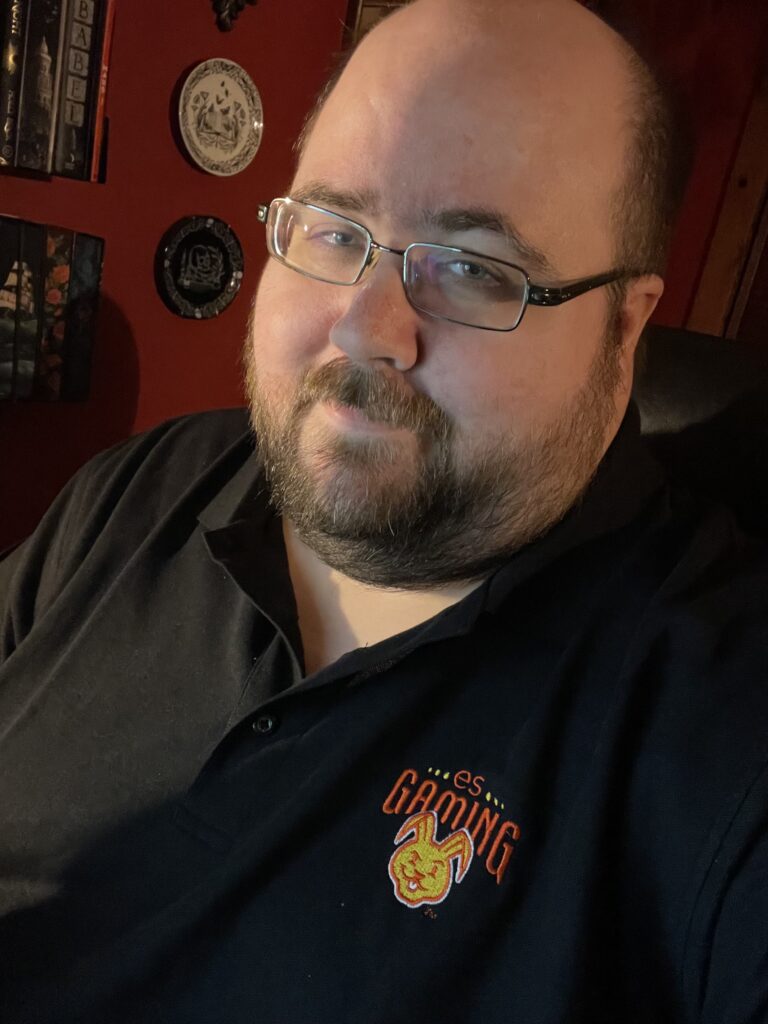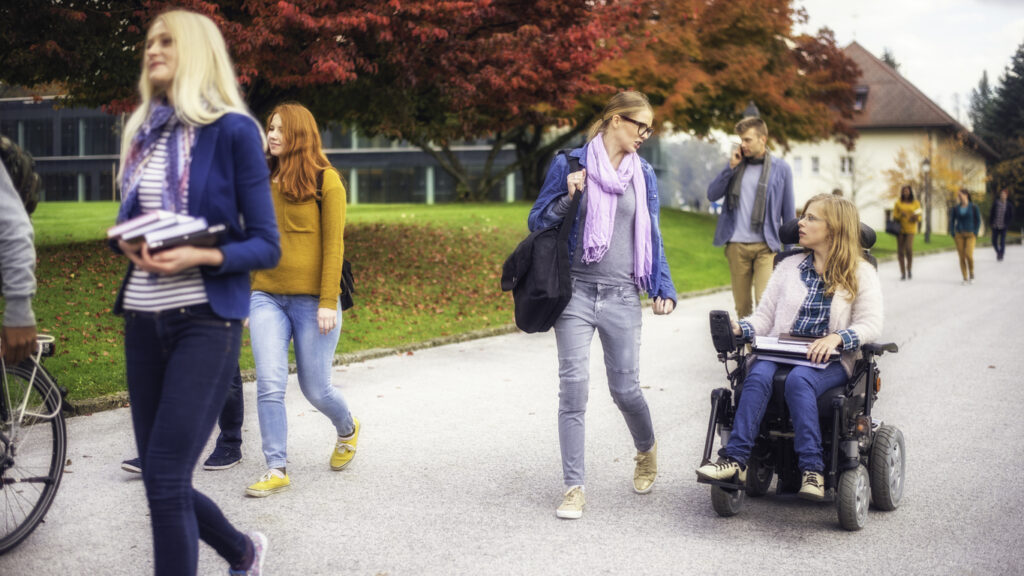How Mandatory Travel Makes Higher Education Inaccessible
by Blog Writers

By Mids Meinberg
You’ve managed to overcome a wide variety of structural barriers and have successfully enrolled at a university. The course work is manageable, if time consuming, and navigating the campus is more difficult and draining than anticipated. Still, you’re doing as well as you can in facing the wide variety of obstacles that appear in front of you every day. You’re not excelling, but you’re surviving. Then one of your courses, an elective that you were very interested in, springs a new requirement on you: a project that counts for a quarter of your grade, that will require you to leave campus.

Meinberg
For most students, leaving campus is a relatively simple task. Even those that can’t drive or don’t have a car have the tools available to seek assistance from their peers. For disabled students, asking for this kind of help is significantly more difficult, even impossible, depending on the accessibility needs of the specific student. A non-ambulatory wheelchair user requires specifically outfitted vehicles that most college students will not have. Someone with persistent social anxiety or autism may find it difficult to ask for assistance from their peers.
Even in those universities located within cities or within broader metropolitan areas, the campuses are rarely directly connected with the public transit networks of those cities. When I attended Rice University, I had multiple times where I was required to go off campus, but I struggled with each of them, adding to the difficulty of my developing depression and lack of a support network.
For an art history course, I was assigned to a group that set out to do a survey of low-income Houston architecture. The other members of the group were older and more established at the university than me, and ultimately, I did not contribute to the group project despite my best intentions. I simply did not have the social tools to navigate the gap in experience as mediated by my growing social anxiety to ask for the assistance from the group members that would allow me to participate as required.
Also, an acting course at Rice required me to attend multiple off-campus live theater shows. While I managed to attend one toward the end of the semester because acting courses inherently open up routes of conversation and establish bonds, attending only one was insufficient for the course’s requirement. Requiring off-campus show attendance was particularly striking because of the high quantity of on-campus productions. Forcing students to go beyond their capability when there were perfectly valid, if less professional, options available within the expected boundaries was unnecessary and alienating.
In contrast, at Stockton (which I attended later in life), I had only a single mandatory activity that had me leave campus. However, this was a group activity that was scheduled with the aid of the course’s professor, thus creating a structured place to discuss group transportation. Everyone was willing to carpool anyone, so my inability to drive did not leave me on the outs from participating. Stockton’s acting courses also required a student to see two productions, but allowed for on-campus shows thus making it so much easier to meet that requirement.
For many disabled students, especially since the outbreak of COVID-19, even attending university on-campus is impossible. The risks associated provide massive barriers to entry, even in those cases where the campus is technically accessible. In response, many have turned to online programs to provide the safety that they require, allowing them to participate in upper education while still remaining in a fully accessible environment.
Yet, fully online programs become rarer and rarer the higher the degree being pursued. According to an interview with Erin Hawley, there are no fully online PhD programs for her degree. She earned a Master’s degree in English via an online program at East Carolina University, but has failed to find opportunities to attain her doctorate. For other areas of study, like creative writing, it can be difficult or even impossible to find even a BFA program that is fully online.
Instead, the more common structure for the pursuit of online degrees is a limited residency program. A limited residency program is mostly online, but has a fraction of the semester (usually two weeks) take place face-to-face on campus. The benefit of a limited residency program is that they allow students to meet with their professors and peers in person, serving as the basis for the ongoing work that the student will do at home for the rest of the semester. Limited residency programs are of the highest value to students who are also working, allowing for them to take a relatively short time away from their jobs while continuing their education.

“I’ve wanted to pursue my doctorate for over 9 years, but haven’t found a single English program that doesn’t require me to board an airplane – something that’s impossible for me because I can’t fly with my modified wheelchair or transfer and sit in a standard airplane seat,” Erin said. “This inaccessibility shows how ableism often works in tandem. Airplanes and long-distance travel are not accessible, which makes academia not accessible for me. We need change that addresses how systematic inequalities compound to make easy tasks for anyone who isn’t disabled impossible for those who are.”
Obviously, this structure makes for immediate accessibility concerns. A short time on campus will be as difficult for a disabled person as a long time, as the physical and social barriers that exist in the space will be immediately apparent. In addition to the difficulties on campus, transportation to the campus is a major obstacle itself for many disabled people. Planes are rarely accessible for even ambulatory wheelchair users, and are very expensive. Long car rides bring their own issues, especially for disabled people who cannot drive. The transportation issue is exacerbated by the short time spent on campus, as it means these difficult trips will happen in closer proximity to each other. This does not even broach the expenses associated with bringing a caretaker along for two weeks away from home.
Telecommunication technology is more advanced now than ever before in part because of advances made to accommodate for the COVID-19 pandemic. These tools make it so that the benefits of limited residency programs can be met technologically rather than spatially. Fully online programs should be more widespread, no matter the degree, as they provide the greatest accessibility possible.
We have the tools available to allow disabled people to engage in higher education at all levels and in all fields. All that is needed is for society to accept the changes that are needed to bring these programs to the forefront.
Mids Meinberg is a writer and game designer working out of New Jersey. They have an AA in Creative Writing from Brookdale Community College.






